First, thank you to those who left kind and supportive comments at a difficult time. Really appreciated. When somebody dies, there’s an awful lot of administration, paperwork and planning to get through. I made an appointment with the Henley Registry Office to find there had been a cock up, and somebody with exactly the same name as my father had died in the neighbouring village and at the same time— so I had to go back there another day. How weird is that? Honey is a relatively unusual name. Especially in the sunny uplands of South Oxfordshire. And on Hallowe’en, too. The girl behind the desk went white, poor thing. ‘First time this has ever happened’ and all that. But I’m now semi-back at work— sort of— which is also therapeutic. So today’s post, usually for paid subscribers, is for all. I’m afraid I will have to skip this Sunday, but hopefully, I can write a post for the following weekend— and then we’ll continue as before, with the ‘paid for’ posts on Friday mornings and the universal posts for Sundays. Let’s see how it goes…
Second, I’ve decided to add (quality) television to the WEEKEND FLICKS. repertoire. I hope readers approve. We’ve skated around this before, with posts on Ken Russell’s A House in Bayswater (1960), John Betjeman’s Metropolitan (1973) and The Stalls of Barchester (1971) from the BBC’s Ghost Stories for Christmas, but I can now go the whole hog. This broadens the scope, and there are some fascinating— sometimes forgotten, often brilliant— films, plays and serials (or is it series?) from British Seventies and Eighties television. I’m thinking An Englishman Abroad (1983) with Alan Bates as Guy Burgess and Coral Browne as herself; Stephen Poliakoff’s Caught on a Train (1980) with Michael Kitchen and Peggy Ashcroft, Dennis Potter’s darkly disturbing Brimstone and Treacle (1976), The Green Man (1990), starring Albert Finney and based on the Kingsley Amis novel (one of my favourite books); and The Pallisers (1974), a truly magnificent television series— I mean, who knew the shenanigans of Victorian Liberal politics could be so fascinating? And then there’s the rather grown-up, dystopian Folk Horror, The Changes (1975), which is supposed to be for children. All these things are good news. But they do need to be readily available— either on DVD or via digital download. There’s no point recommending a film if the readers can’t watch it.
First up is A Scandal in Bohemia, from 1984, the very first episode in Granada’s superb Sherlock Holmes series, starring Jeremy Brett. I remember watching this— I have an excellent memory— when it first came out, at school in my housemaster’s sitting room. My housemaster (who taught English and had written a book on T. S. Eliot) was a little bit sniffy, wringing his hands over Watson’s dodgy vowels. I was more interested in Gayle Hunnicutt. But I don’t think any of us, at that time, had any idea how successful— and much loved— the series would become. Is Jeremy Brett the definitive Holmes? Many Holmesians think so— Brett’s Sherlock is neurotic, histrionic, fiendishly intelligent— and marvellously patronising. That said, I must confess to a liking for Basil Rathbone’s rather patrician, clipped Holmes in the black-and-white Hollywood film noirs of the 1940s. He’s reassuring. A bit like the Changing of the Guard at Buckingham Palace (Christopher Robin went down with Alice), the Gold Standard or Tea at Fortnum’s. Somehow, you know that everything will be all right— exemplified by the cosy bachelor flat at 221B Baker Street: a refuge from the sinister web of mystery which is gaslit, foggy London; Mrs Hudson’s kedgeree and the Seven Per Cent Solution.
The series was produced by John Hawkesworth, also responsible for Upstairs Downstairs (1971-75), The Duchess of Duke Street (1976-77), and Danger UXB (1977). Quality stuff. Granada Television, based in Manchester, were, of course, also responsible for Brideshead Revisited (1981) and The Jewel in the Crown (1984)— a tantalising combination of talent. For the Sherlock Holmes series, Granada returned to the roots in a deliberate attempt to capture the flavour and essence of Conan Doyle’s original creation. Imagery is taken almost directly from Sidney Paget’s original illustrations for The Strand Magazine. Out went the clichéd tweed deerstalker (worn in the country, never in London) for a black silk topper, and Watson (initially played by David Burke, later replaced by Edward Hardwicke) is depicted as a relatively and reasonably intelligent young man (he’s twenty-eight when he first meets Holmes), the antithesis of delightful thicko, Nigel Bruce, whose Watson ain’t the full shilling. There’s also remarkable attention to period detail, even if the series was filmed on location in the grey stone and redbrick of the North of England rather than the yellow brick and stucco of London. Irene Adler’s 1840-ish villa, which is supposed to have been located in the mistress heaven which says St John’s Wood, looks deceptively like a Blackheath, Greenwich or Stockwell number but was actually filmed in Liverpool. Granada’s Baker Street set also looks more like a relaxed side street, leading on to Regent’s Park, actually not dissimilar to the Cherry Tree Lane of Mary Poppins (1965), when, as you will remember from old photographs, the historic Baker Street would have been a busy artery to the North— clogged with hansom cabs, hawkers, street urchins, omnibuses and heavy horse-drawn traffic. The noise must have been deafening.
A Scandal in Bohemia was first published in The Strand Magazine in the summer of 1891; the first of the Sherlock Holmes short stories following the previous novels, A Study in Scarlet (1887) and The Sign of Four (1890). The King of Bohemia commissions Holmes to recover an incriminating cabinet photograph in the possession of his former lover, the remarkable Irene Adler, an American opera singer with a mysterious, even dubious past. Gayle Hunnicutt is Irene Adler. I’m a massive fan of She-Who-Can-Do-No-Wrong Gayle. She’s gobsmackingly, drop-dead gorgeous. I mean, really beautiful in an understated, unflashy way, And she is— or was— a distinguished actress. She’s a perfect Alexandra to Charles Kay’s Nicholas II in Fall of Eagles (1974)— another series we might cover at a later time; she played the lead in the now-overlooked ghost story Voices (1973), also starring Gayle’s then-husband, David Hemmings, and remarkably similar in concept to Nicole Kidman’s The Others, (2001). And she’s in Fragment of Fear (1970), again with Hemmings, plus The Legend of Hell House (1973), an amusing haunted house B movie starring Roddy McDowall and an uncredited Michael Gough— who seems to be in everything. If A Scandal in Bohemia is very slightly creaky in places— the riot scene outside Irene’s house is a trifle unconvincing— and Holmes’ supposed disguises seem— er— slightly obvious, that is to be forgiven: the first episode set the pace for a superb series. For many fans, Brett is the definitive Sherlock, only faltering due to poor Jeremy Brett’s various illnesses— both physical and psychiatric— and subsequent death from heart failure in 1995 at the age of 61. Which left nineteen stories still to go: one of the great ‘ifs’ of this fabulous series: Granada’s interpretation of The Five Orange Pips (1891) must remain in our imaginations, a personal favourite I first read at nine, on a hot summer’s day in 1975. But that’s a minor quibble. Sit back, mix yourself a Whisky Sour and enjoy The Man with the Twisted Lip, The Copper Beeches, The Silver Blaze and The Red-Headed League in all their glory, saving the feature-length specials for High Days and Holy Days: The Hound of the Baskervilles, The Sign of Four and The Last Vampyre (aka The Adventure of the Sussex Vampire).
Patrick Gowers’ soundtrack is also terrific. Film reviewers often fail to mention the musical side of things, which is a shame, as I think a soundtrack brings a great deal to the party. It’s a stylish pastiche. Hints of 19th-century Romantic composers, a reworking of the main theme accompanying the main titles (the violin and the street urchins). And those of you with a musical bent might recognise the composers. There’s a sort of Richard Strauss/Wagner thing for A Scandal in Bohemia (not unlike Tristan und Isolde), Dvorak’s New World Symphony for The Naval Treaty, an Anglican anthem in the manner of S. S. Wesley for The Priory School, a romantic violin concerto thing— Mendelssohn, Tchaikovsky or Smetana, perhaps— for The Musgrave Ritual, and more obviously, Elgar for The Second Stain. Clever readers may spot other influences. The complete Sherlock Holmes soundtrack by Patrick Gowers is available on Spotify and comes with my recommendation. Perfect music to work to.
So there you go. A Scandal in Bohemia (1984). The very first episode in the very first series of Granada's Sherlock Holmes. I've just started re-watching the entire series, an episode a night before me luverly mug of Ovaltine and bed— and enjoying it immensely. The complete shooting match is available to watch on ITVX for free— if you can handle the increasingly tedious and irrelevant advertising. Alternatively, with Christmas approaching, the definitive 16 disc DVD box set Sherlock Holmes: The Complete Collection costs £29.23 on Amazon. It's a serious temptation.
You’ve just been reading a newsletter for both free and 'paid-for' subscribers. I hope you enjoyed it. Thank you to all those of you who have signed up so far.
There are two options on Luke Honey’s WEEKEND FLICKS. Cinema for Grown Ups: ‘Paid-for’ subscribers get an extra exclusive film recommendation every Friday morning, plus full access to the complete archive— which is currently at film no. 94, and should list over a hundred films by the end of the year. It costs £5 a month (or £50 a year)— a bargain, frankly, when you compare it to a few cups of coffee, a packet of semi-legal gaspers, or a pint of beer in the pub. ‘Free’ subscribers get access to the Sunday newsletter, plus the ‘free subscriber’ films in the archive. Either option is a good bet. And when I get my act together, I’m planning to add a spoken voiceover (mine!) for paid subscribers.
Normally I would write a post for Sunday, but due to ‘unforeseen circumstances’ as the euphemism goes, my next post will be for either Friday or Sunday, the following week. Then we’re back to normal. We’ll see how it goes…

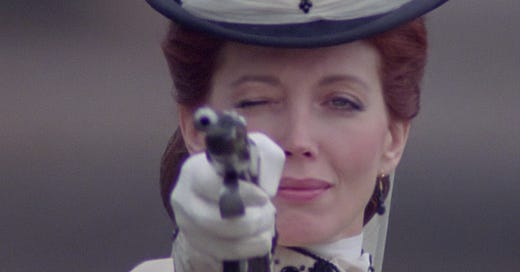



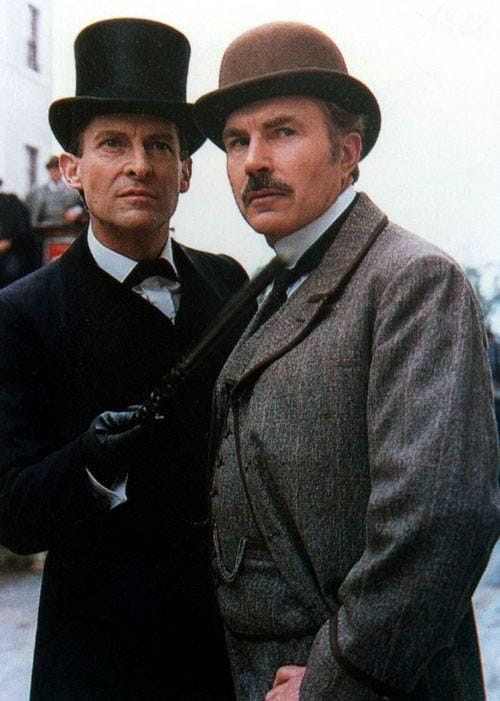
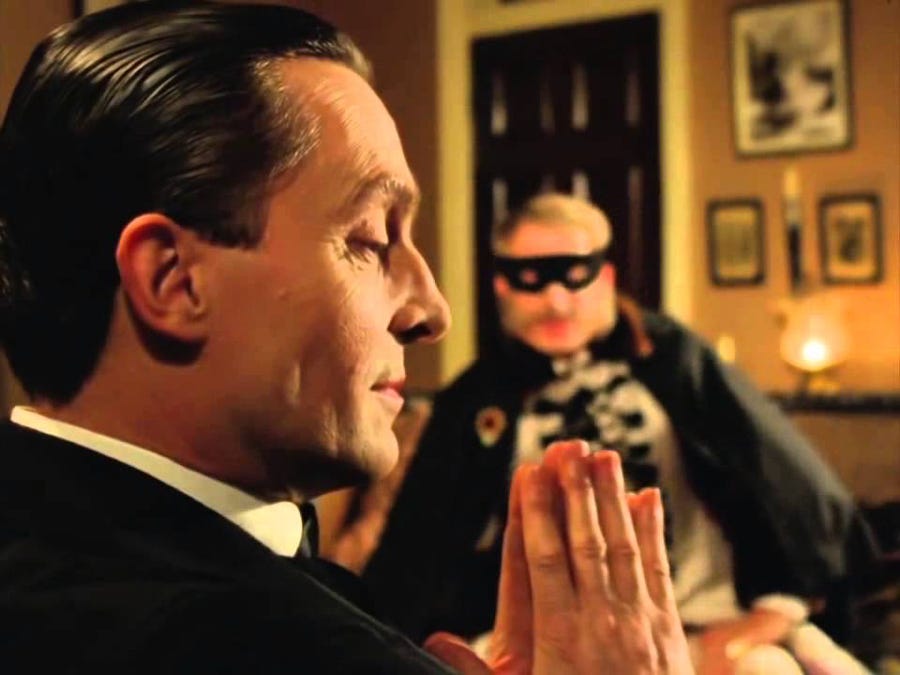


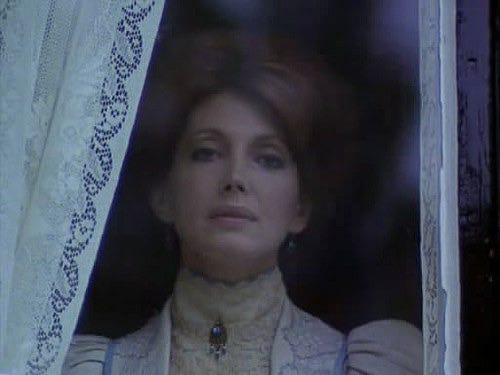
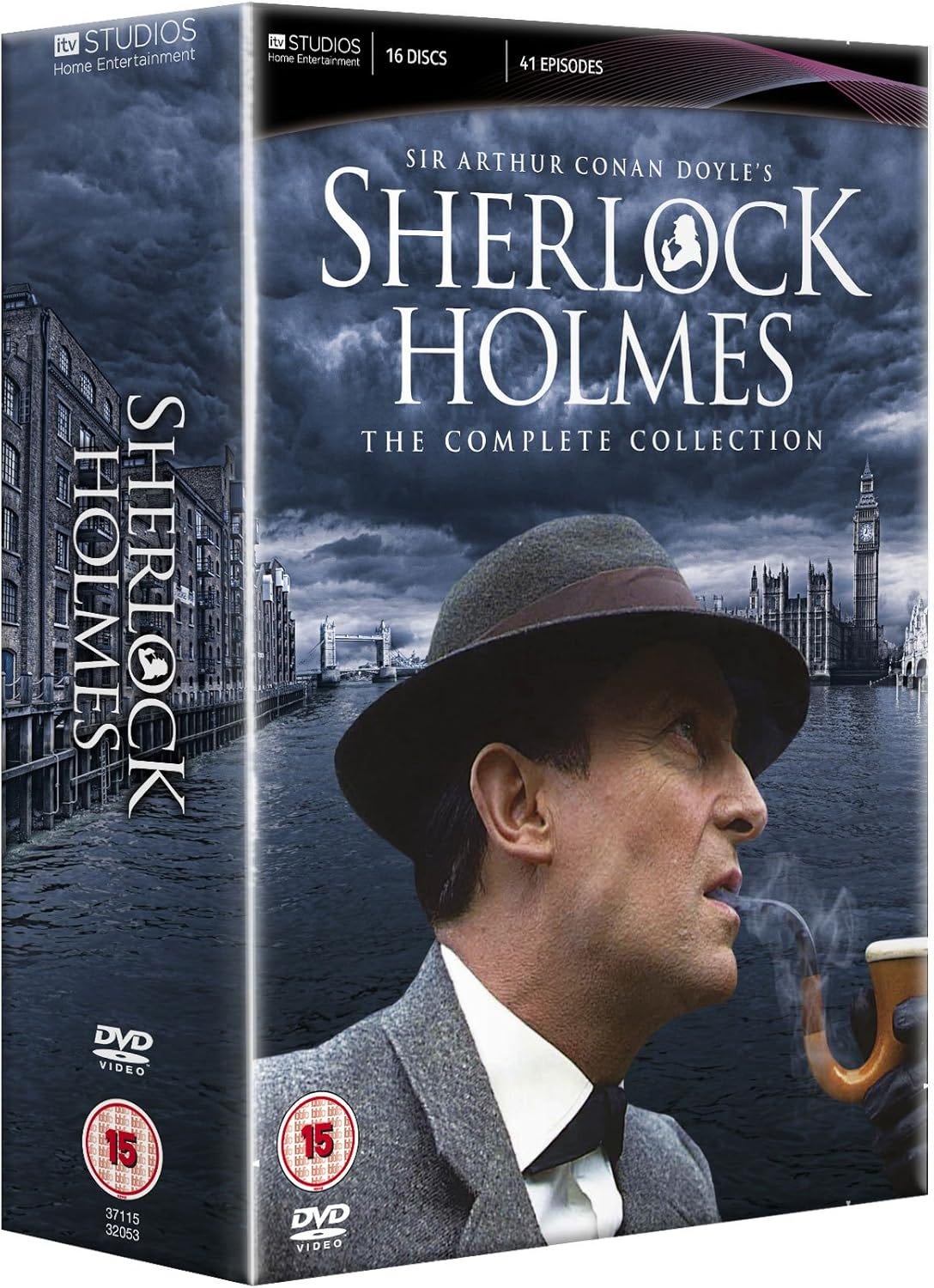
Welcome back. So strange and weird around the registration of your Dad´s passing.
This is my favorite Sherlock Holmes too, thank you for the reminder to watch something comforting in these crazy times. This week has been God awful.
Thank you and I meant to send you a commiseration but felt awkward as a complete stranger. You bring understated and unasked for pleasure to many - a fact of which you and your father can feel justifiably proud.
The One remains, the many change and pass;
Heaven’s light forever shines, Earth’s shadows fly;
Life, like a dome of many-coloured glass,
Stains the white radiance of Eternity,
Until Death tramples it to fragments.